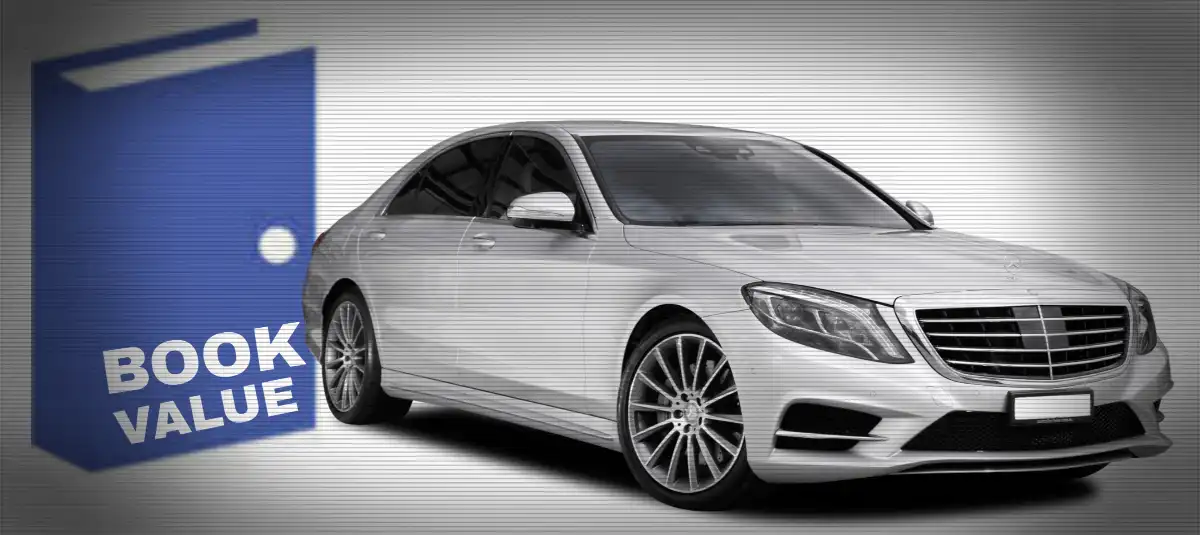Are you planning on buying or selling a vehicle? If so, you will likely come across the term ‘book value’. The book value of a vehicle helps to determine its worth. Therefore it helps to know how to find the book value of a vehicle since it can help sellers price their vehicles appropriately. Moreover, it ensures that buyers are not paying more than they should.
Whether you are a potential car buyer or seller, this guide is for you. No party wants to feel cheated in the deal, and we want to help ensure fairness through this post.
What is Book Value on My Car?
The “book value” of your car is essentially the vehicle’s estimated market value based on various factors such as the car’s make, model, age, mileage, overall condition, and any additional features it might have. This value is used as a benchmark in the auto industry for setting prices in both buying and selling situations.
To find the book value of your car, you can use several online resources such as the National Automobile Dealers Association (NADA), Kelley Blue Book, or Edmunds.
These resources ask for specific information about your car and then provide an estimated value based on data from comparable vehicle transactions.
How to Find the Book Value of a Vehicle

Finding the book value of a car is not rocket science. From the comfort of whatever convenience, you can quickly determine a vehicle’s worth like a professional. Follow these simple steps:
1. Get information about the vehicle
You want to accurately estimate and find the book value of a vehicle, so you’ll need specific information about it. This includes:
| Year of manufacture | The model year of a vehicle influences its value due to depreciation over time. |
| Make and model | The brand and specific model of the car can affect resale value. Popular models or prestigious brands often have higher book values. |
| Mileage | The number of miles a car has been driven, which impacts its value. Higher mileage typically leads to lower value due to potential maintenance issues or reduced remaining lifespan. |
| Condition | The overall condition of the vehicle, including mechanical state, cosmetic appearance, and the condition of the interior. Well-maintained cars in good condition generally have higher values. |
| Options and features | Additional features and options enhance the car’s value, such as leather seats, advanced infotainment systems, and a sunroof. Having desirable features can increase the car’s overall value. Meanwhile, consider this interior cleaner for your car. |
2. Consult an online valuation tool
Once you have all the necessary information about the vehicle, you can use online valuation tools to find its book value. Websites such as Kelley Blue Book and NADA offer free calculators.
You’ll need to enter the gathered information, and the tool will provide an estimated range of values. This range represents what you might expect to receive or pay if the vehicle were sold in a private sale or trade-in.
3. Assess the vehicle condition
The condition of the vehicle is a crucial factor that affects its book value. Valuation tools typically classify vehicle conditions into categories like ‘Excellent’, ‘Good’, ‘Fair’, or ‘Poor.’ Make sure to assess your vehicle’s condition honestly and accurately. Remember, normal wear and tear can downgrade the condition, and if the car needs repairs, this will significantly impact the valuation.
4. Understand the results
After entering all the necessary details, you will receive an estimated value range. This is the approximate market value of the vehicle based on the information provided.
However, this is just an estimate. The actual selling price may differ based on local market conditions, the buyer’s willingness to pay, and your negotiation skills.
If you’re a buyer, the book value can be your starting point in negotiations. If you’re a seller, the book value can help you set a reasonable asking price.
5. Verify with local listings
For a more comprehensive understanding of a vehicle’s value, consider checking local listings for similar vehicles.
Online platforms like Autotrader or Craigslist can provide real-world data on what people in your area are asking for similar makes and models. Remember, these are asking prices, not the final selling price, but they can still give you an idea of what’s reasonable.
What is the Best Way to Find the Value of My Vehicle?
Below are some of the best websites you can use to find the value of a vehicle:
1. Edmunds.com
Edmunds.com is a highly regarded online resource that can help you determine the value of your vehicle. In addition to its wealth of information about various vehicle models and makes, Edmunds.com hosts online forums where car enthusiasts share experiences, tips, and advice on buying used vehicles.
Here, you can gather firsthand accounts of how much others have paid for similar vehicles and whether they believe they got a good deal or paid over the odds.
2. Insurance Appraisal
Your insurance company can also be a valuable resource in estimating your car’s worth if you’re insured. Most insurance providers offer this service through their websites or apps. You’ll need to input your vehicle’s details, and the insurer will provide an estimate of its value based on their comprehensive data and algorithms.
3. Kelley Blue Book
Another excellent resource for finding the book value of your vehicle is the Kelley Blue Book. Available in print or online at KelleyBlueBook.com, this resource provides an extensive database of information about specific vehicle models and general advice on used car buying and selling practices.
4. National Automobile Dealers Association (NADA)
A widely recognized source for determining the book value of vehicles is the National Automobile Dealers Association (NADA). NADA offers two separate resources: The Official Used Car Guide and its online counterpart, NADAguides.com. Both of these publications contain detailed insights into the complete cost cycle of a vehicle, from purchasing to owning and finally selling. Many states mandate that drivers use the NADA book value for their vehicle valuation, though they may also allow other sources.
5. DMV Appraisal
Lastly, the DMV can provide an official appraisal to help you establish your car’s worth. However, this service may not be universally available, as its availability often depends on your location and the specific type of vehicle you own. To obtain a DMV appraisal,
You will need to visit your local DMV office with all necessary documentation, such as registration and proof of ownership for appraisal to find the book value of a vehicle. After filling out an application form, a DMV appraiser will research local listings for used vehicles comparable to yours in terms of mileage, condition, and additional features. They will then provide a price range estimate for your car.
What is the Difference Between Book Value and Market Value of a Car?
Book value refers to the value of a car as carried on the books of the owner, which is usually based on the original cost minus depreciation. It can also refer to the estimated value of a car as provided by an authoritative guidebook or valuation service like Kelley Blue Book (in the US), taking into account factors like the age of the vehicle, mileage, overall condition, and any special features or modifications.
It’s essentially a standardized estimate of the car’s value at a given point in time, regardless of where or how it’s sold.
On the other hand, market value is the price that a particular car might command in the open market, i.e., what someone is actually willing to pay for it.
The market value is influenced by various factors such as the supply and demand for that type of vehicle, the local or regional market conditions, the timing (e.g., convertibles may sell for more in the summer), and the individual characteristics of the specific car (such as its exact condition, color, or history).
Conclusion
Having known how to find the book value of a vehicle, don’t hesitate to leverage it to ensure fair market pricing for your car. Also, these are merely estimates, and the actual value of your vehicle may be slightly higher or lower, depending on factors like local market conditions or the buyer’s perception of the car’s worth.


